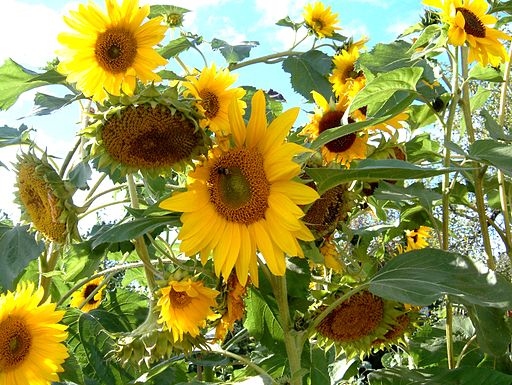You can change the conversation. Chip in to rabble’s donation drive today!
Amongst the lettuce, a new vibrant green pushes its way to the sun; it grows to six feet high — it turns out to be a giant sunflower, opening a beautiful face packed with seed to the light of your backyard; you didn’t plant it but you enjoy it; the goldfinches enjoy it; you fend off squirrels and birds to eat a handful and to put a few seeds aside in a cool dry place to replant next year and to share with your neighbours. Perhaps your five year old starts selling bouquets of the sunflowers at the end of the driveway. If UPOV ’91 passes, she could be in trouble.
Certainly the writing is on the wall for farmers who have saved, developed and exchanged seed with neighbours for generations. If UPOV ’91 passes, it will be one more nail in the coffin of the farmers’ right to save and exchange the seed they have developed on their farm.
UPOV ’91 (the acronym for the International Union for the Protection of New Varieties of Plants) has failed twice in Canada (1992 and 1998) but it looks like the Harper government may push it through this winter. Under the gobbledy-gook of legal language, it would be another victory for the transnational companies that seek to privatize agricultural supplies. Three companies — Monsanto, DuPont and Syngenta– control over 50 per cent of the seed market worldwide. UPOV ’91 would consolidate this power over intellectual property that formerly was a public resource — seeds.
The fight to stop UPOV ’91 is led in part by the NFU. Terry Boehm, past president of the National Farmers Union explains:
UPOV ’91 is not about increasing plant varieties available to farmers as proponents suggest. What it is really about is stealing the genetic materials, refined for generations by farmers and public plant breeders, tweaking it slightly and then forcing farmers and citizens to pay them for the privilege of growing a crop. What the largest seed and chemical companies in the world want is a guaranteed revenue stream flowing to them from the backs of farmers. They will gain powerful control of the food we eat through the almost total control of seed that UPOV ’91 grants them. Are we ready to trust Bayer, Monsanto, Du Pont and Syngenta with that kind of power? I think not!
The fight against UPOV ’91 is similar to the battle against Genetically Modified Organisms (GMOs), the engineered seeds that are owned by transnational companies and cannot legally be saved to be replanted next year. If farmers plant these privately owned varieties after they drift onto their farm, or sell the harvest after accidentally planting them, they can be sued for stealing intellectual property. Canadian farmer Percy Schmeiser learned this to his sorrow.
The language is deceptive. So-called “Plant Breeders’ Rights” under UPOV ’91 would mean that a seed developer could demand royalties on a farmers’ crop at the harvest, point of sale or even during processing. The goals are clear: according to the Manitoba Cooperator, the Agriculture Minister Gerry Ritz proudly explained in November that UPOV ’91 “will provide plant breeders with a better return on investment and encourage more private-sector investment into developing new crop varieties.” The bill would “protect” these rights, i.e., facilitate ownership of a public resource by transnational corporations.
It is quite possible that many of us have different goals for Canadian agriculture than supporting the return on investment for transnational agricultural supply companies like DuPont and Monsanto. How about producing good food for Canadians instead of the export of commodities? How about agriculture that increases the control of farmers, restores the right to save seed and supports the indigenous development of varieties that work well here and meet particular Canadian tastes and climate?
The Harper government continues to assume that export-oriented agriculture is the only solution to a struggling sector. This approach has clearly failed; farmers are exiting the profession in droves, selling their land to the nearest developer so that they can retire, pay off their debts and put their feet up for once. We import more food than we export, often the same products, sending out our luscious Holland Marsh carrots and bringing in the California ones. It is time to reconsider our national goals for agriculture, and to make a farming sector that benefits all Canadians instead of toadying to transnationals like Monsanto and DuPont.
“New intellectual property rights enclose the biological, intellectual and digital commons. The enclosure of each common displaces and disenfranchises people which creates scarcity for the many while generating “growth” for the few.” (Vandana Shiva, Earth Democracy).
Like this article? Chip in to keep stories like these coming!
Sally Miller (MA/ PhD, MES) has worked for over twenty years as a researcher, manager and developer for sustainable food and farming initiatives. She is the author of Edible Action: Food Activism and Alternative Economics.
To get involved, contact Matt Gehl of the National Farmers’ Union at 306-216-6064.
Photo: wikimedia commons



